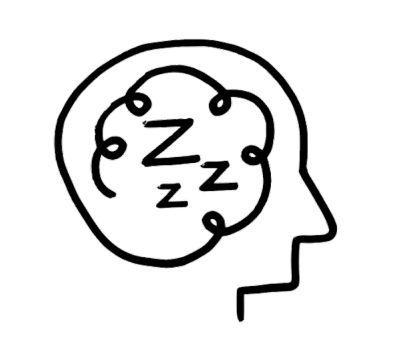What is progressive muscle relaxation?
Progressive muscle relaxation (PMR) is a type of grounding technique that involves slowly tensing and then relaxing different muscle groups in your body. Doing this in a calm, mindful way can help you notice where your body is holding stress and give you a way to let go of it
Some people also know it as:
- Deep muscle relaxation
- Muscle tension release
- Body scanning or full-body relaxation.
Whatever name you come across, the purpose is the same: to help your body and mind work together to ease tension and reduce feelings of distress.
- Progressive muscle relaxation can be used for:
- Improving sleep: If your body feels restless or you’re lying awake with racing thoughts, PMR can help relax your body bit by bit, signalling to your mind that it’s okay to rest.
- Easing stress or anxious feelings: When emotions run high, you might notice tight shoulders, a clenched jaw, or a knot in your stomach. PMR can help you let go of that built-up tightness, making it a little easier to breathe and find a sense of calm.
- Soothing discomfort in your body: Stress doesn’t just stay in your head; it shows up physically, too. PMR can help relieve common aches linked to tension, especially if you’ve been sitting for long periods or feeling on edge.
- Providing distraction: When thoughts feel overwhelming or distressing, PMR can act like an anchor. By focusing on one part of your body at a time, you can bring your attention to what's around you and away from whatever might be causing distress.
Whether you're sitting at your desk or trying to fall asleep, progressive muscle relaxation can gently support you in many moments, especially when life feels a bit too much.
How does it support your wellbeing?
Our minds and bodies are closely connected. When you're feeling anxious or under pressure, your body might tense up without you even realising. Over time, that tension can add to feelings of fatigue, restlessness, or unease. PMR gives you a chance to break that cycle.
With regular practise, it can help:
- Calm your nervous system
- Improve your awareness of how your body responds to stress
- Build a sense of control and calm in challenging moments
- Manage feelings of anxiety.
Everyone’s different, and what works for one person might not work for another. If PMR isn’t your thing, that’s okay. Just remember that it's always an option you can try to support your wellbeing.
How to do progressive muscle relaxation anywhere
The nice thing about PMR is that you don’t need any special equipment, and it only takes a few minutes.
Here’s how to do a body scan:
- Find a quiet place to sit or lie down in a comfortable spot
- Take a few slow and deep breaths to relax
- Begin by squeezing your toes and feet as tight as you can for a few seconds, then let go and feel the tension release
- Now, tense up your calf muscles, hold for a moment, and then let go
- Tense your thigh muscles, then release
- Make tight fists with your hands, hold, and then relax
- Now, bring your shoulders up to your ears, hold, and then let them drop down
- Scrunch your face tightly, then release all the facial muscles
- Take a few more deep breaths, feeling the relaxation spreading through your body.
Keep in mind that you don’t have to go through your whole body. Just focusing on one or two areas, like your shoulders or jaw, can still help ease tension. Start wherever feels right for you.
If you'd like guidance, you can follow along with the video below or find guided PMR and other body scan techniques on mindfulness apps like Calm or Smiling Mind.
Progressive muscle relaxation is one small way to ease tension, manage stress, and create a sense of calm - right where you are.
It might feel unfamiliar at first, but like any new habit, it gets easier with time. Click here to explore more grounding techniques to try.





